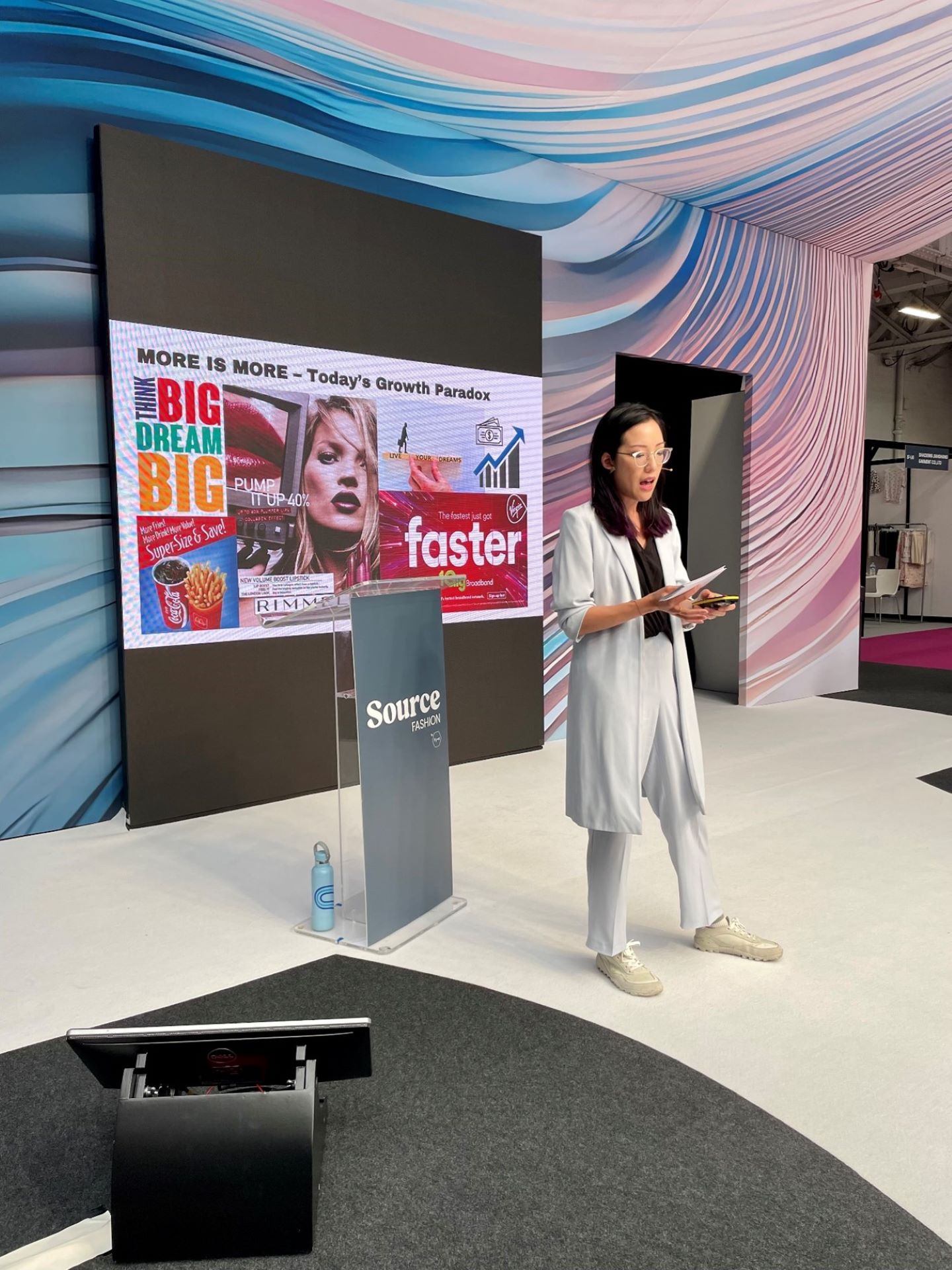
Bayliss-Wong, a Forbes 30 under 30 retail expert and former director of Depop, made the comments on sustainability and reuse at a session exploring whether brands and retailers could be sustainable and profitable at the same time.
Bayliss-Wong acknowledged that naturally, the end goal for any business is growth. But the more businesses grow on the back of demand, the higher the resource consumption and so ultimately that growth is leading to the destruction of the planet.
Though brands and retailers have moved and are moving themselves to consume more consciously and encourage their consumers to do the same, Bayliss-Wong says it is no longer enough to secure custom for the future, and subsequently, profit.
Depop is a peer-to-peer social e-commerce company. Its global community buys, sells and connects to make fashion more inclusive, diverse and less wasteful.
But Bayliss Wong says the platform didn’t start out under a plan to save the planet. The awareness of waste created by the industry has spearheaded its growth.
“We’re seeing lots of sharing of stuff. People are able to buy used goods from others or rent occasionwear. They are able to lengthen the use of their goods through repair services.
“And businesses are actually making huge amounts of money by tapping into that sentiment and giving customers something beyond the actual products themselves.

US Tariffs are shifting - will you react or anticipate?
Don’t let policy changes catch you off guard. Stay proactive with real-time data and expert analysis.
By GlobalData“The disruptive businesses are gaining market share by going beyond just inability. Because sustainability is no longer about doing less harm. It’s about doing more good.”
She noted many business executives may assume that if they were to focus on their products giving back more than they made, it would need to be a charity or non-profit. But she says much of the problem is coming from designing clothing that can’t be reused.
“Clothing needs to be made with seams and things that can be easily disassembled. And you need to have single fibre materials that are much easier to recycle than mixed ones. Also, materials that can be redyed and repurposed – basic things like that.”
She gives the example of Vivo Barefoot shoes which use less padding and plastic and are designed, broken down and remade with another pair of shoes.
“We’ve actually launched a new solution for Vivo; a system that scans your feet and you get the 3D printed version to fit your feet. These are produced made-to-measure in Ireland, so the local production lowers the carbon footprint. All this reduces waste and lowers emissions. But they’re also designed to be remade and printed into another pair of shoes with that material.
“It sounds kind of futuristic but it is here today. The future is happening now. And I actually believe that in the very near future, this way of working is just going to be the norm. Especially once one company starts doing it well and starts making some money from it. Everyone starts doing it.
“Sustainability is not just about doing what we normally do. It’s not about doing what we’ve always done. We must do something more because everything that we do has an impact.”



